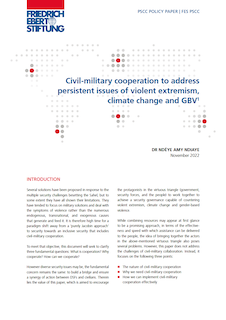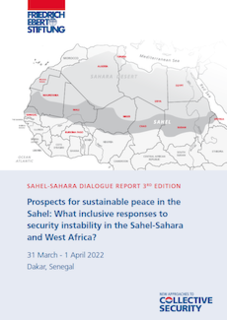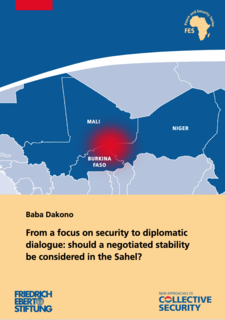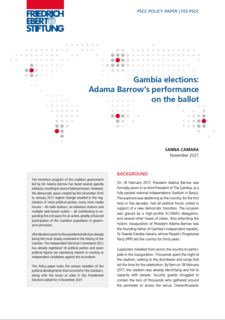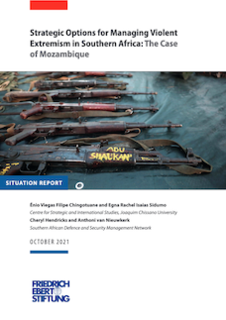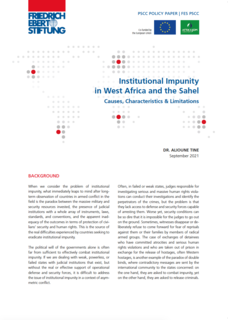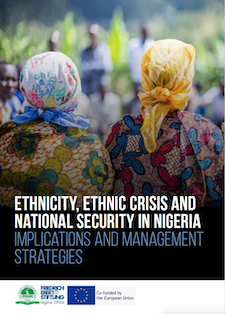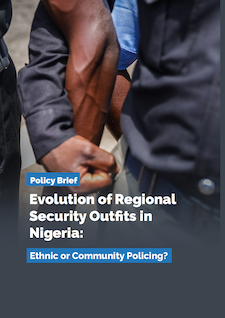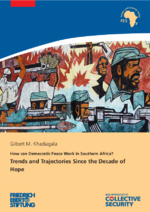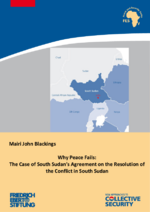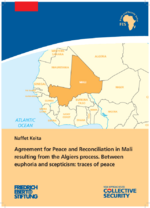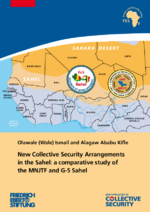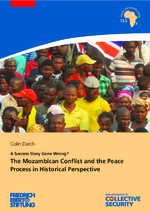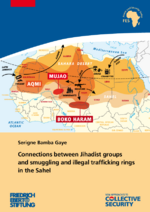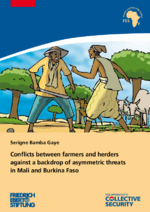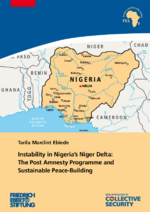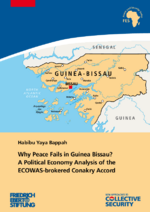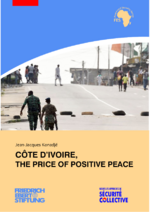Publications
Khadiagala, Gilbert M.
How can democratic peace work in Southern Africa?
Dakar-Fann, 2018
Download publication (4 MB, PDF-File)
Blackings, Mairi John
Why peace fails: The case of South Sudan's Agreement on the Resolution of the Conflict in South Sudan
Download publication (1,5 MB PDF-File)
Keita, Naffet
Agreement for peace and reconciliation in Mali resulting from the Algiers process
Dakar-Fann, 2018
Download publication (740 KB, PDF-File)
Ismail, Olawale; Kifle, Alagaw Ababu
New collective security arrangements in the Sahel
Dakar-Fann, 2018
Download publication (540 KB, PDF-File)
Darch, Colin
The Mozambican conflict and the peace process in historical perspective
Dakar-Fann, 2018
Download publication (2 MB, PDF-File)
Gaye, Serigne-Bamba
Connections between Jihadist groups and smuggling and illegal trafficking rings in the Sahel
Download publication (600 KB, PDF-File)
Gaye, Serigne-Bamba
Conflicts between farmers and herders against a backdrop of asymmetric threats in Mali and Burkina Faso
Download publication (300 KB, PDF-File)
Ebiede, Tarila Marclint
Instability in Nigeria's Niger delta
Dakar-Fann, 2018
Download publication (750 KB, PDF-File)
Bappah, Habibu Yaya
Why peace fails in Guinea Bissau?
Dakar-Fann, 2018
Download publication (560 KB, PDF-File)
Konadjé, Jean-Jacques
Côte d'Ivoire, the price of positive peace
Download publication (900 KB, PDF-File)
Friedrich-Ebert-Stiftung
Peace and Security Centre of Competence Sub-Saharan Africa
Villa Ebert
Avenue des Ambassadeurs
Fann Résidence
25516 Dakar-Fann
Sénégal
Team and Contact
Reports
How to engage and with whom towards collective security in the Sahelo-Saharan region and in West Africa? Dakar, 4 - 5 December 2017
If you are interested in accessing all digitalized publications of Friedrich-Ebert-Stiftung, please visit the FES Digital Library. Please feel free to contact us if you are interested in a specific publication.
